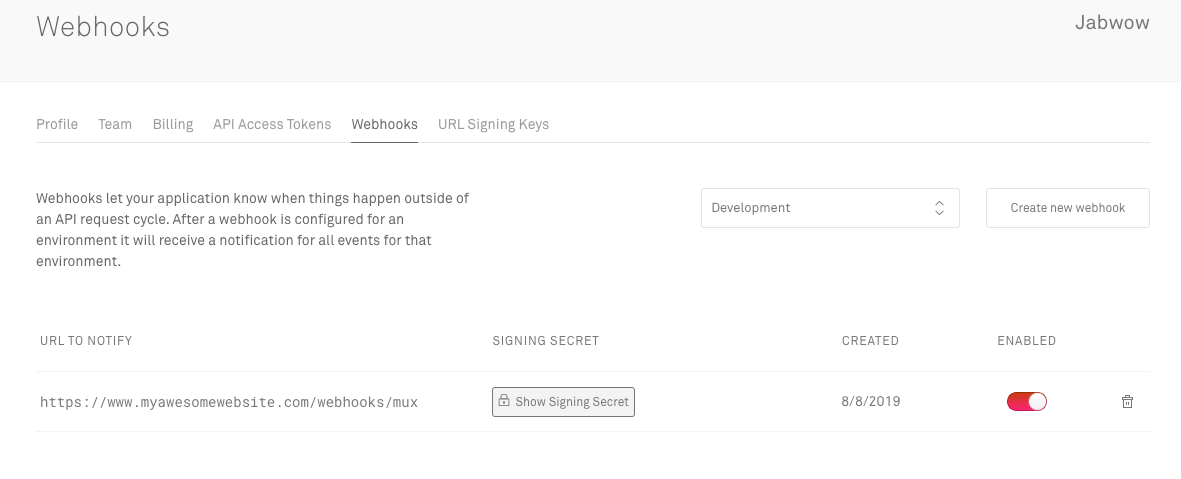Verify webhook signatures
You have the option to verify webhook requests that Mux sends to your endpoints. Mux will include a signature in the request's header. You can use this signature in your code to make sure the request was sent by Mux and not a third party.
In this guide:
Before you get started, you will need your signing secret for your webhook. You can find that where you configure webhooks on the webhooks settings page. Please note that the signing secret is different for each webhook endpoint that we notify.

Webhooks contain a header called mux-signature with the timestamp and a signature. The timestamp is prefixed by t= and the signature is prefixed by a scheme. Schemes start with v, followed by an integer. Currently, the only valid signature scheme is v1. Mux generates signatures using HMAC with SHA-256.
Mux-Signature: t=1565220904,v1=20c75c1180c701ee8a796e81507cfd5c932fc17cf63a4a55566fd38da3a2d3d2`1Extract the timestamp and signature
Split the header at the , character and get the values for t (timestamp) and v1 (the signature)
2Prepare the signed_payload string
You will need:
- the timestamp from Step 1 as a string (for example: "1565220904")
- the dot character
. - the raw request body (this will be JSON in a string format)
3Determine the expected signature
Use the 3 components from Step 2 to compute an HMAC with the SHA256 hash function. Depending on the language that you are using this will look something like the following:
secret = 'my secret' // your signing secretpayload = timestamp + "." + request_bodyexpected_signature = createHmacSha256(payload, secret)4Compare signature
Compare the signature in the header to the expected signature. If the signature matches, compute the difference between the current timestamp and the received timestamp, then check to make sure that the timestamp is within our tolerance. By default, our SDKs allow a tolerance of 5 minutes.
Examples
Our official SDKs for Node and Elixir contain helper methods for verifying Mux webhooks. If you're using one of these languages it's best to use our available helper methods. Note that the helper methods use the raw request body instead of a payload including the timestamp.
# check the mux-elixr docs for details and a full example using Phoenix# https://github.com/muxinc/mux-elixir#verifying-webhook-signatures-in-phoenixMux.Webhooks.verify_header(raw_body, signature_header, secret)